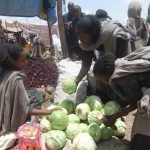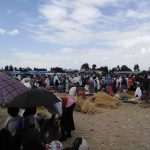New journal article by Sunny S Kim, Phuong Hong Nguyen, Lan Mai Tran, Silvia Alayon, Purnima Menon, Edward A Frongillo. Background: Social and behavior change communication interventions are integral to improving dietary and care practices, but evidence on the impact of the combination and intensity of these interventions in different contexts is scarce. Read more.
Insights January 2020
Addressing obstacles to free trade; modeling migration from sea-level change; and more.
More than three billion people globally are eating too much or too little. But we can fix our faulty food system
The Telegraph (UK) published an opinion by Kalle Hirvonen, a Senior Research Fellow and co-author (with Derek Headey) of the study, Affordability of the EAT-Lancet reference diet: A global analysis. Hirvonen writes that after using the cheapest locally available items in each food group in each country, the study found that at least 1.58 billion people globally could not possibly […]
Lack of dietary diversity in Ethiopia is tied to limited access to a variety of foods and affordability, new research finds
Re-posted from Aliveandthrive. Many Ethiopians have little variety in their diets because foods such as meats and poultry and some fruits and vegetables are unavailable or too expensive, according to new research. Researchers looked at consumption, production, availability, and affordability in six regions of Ethiopia, to understand how well the regions’ food systems—from farm inputs […]
The rapid transformation of food supply chains in developing and emerging economies with implications for farmers and consumers
Population growth alone dictates that global food supplies must increase by over 50% in coming decades. Advances in technology offer an array of opportunities to meet this demand, but history shows that these can be fully realised only within an enabling policy environment. Sustaining Global Food Security makes a compelling case that recent technological breakthroughs […]




